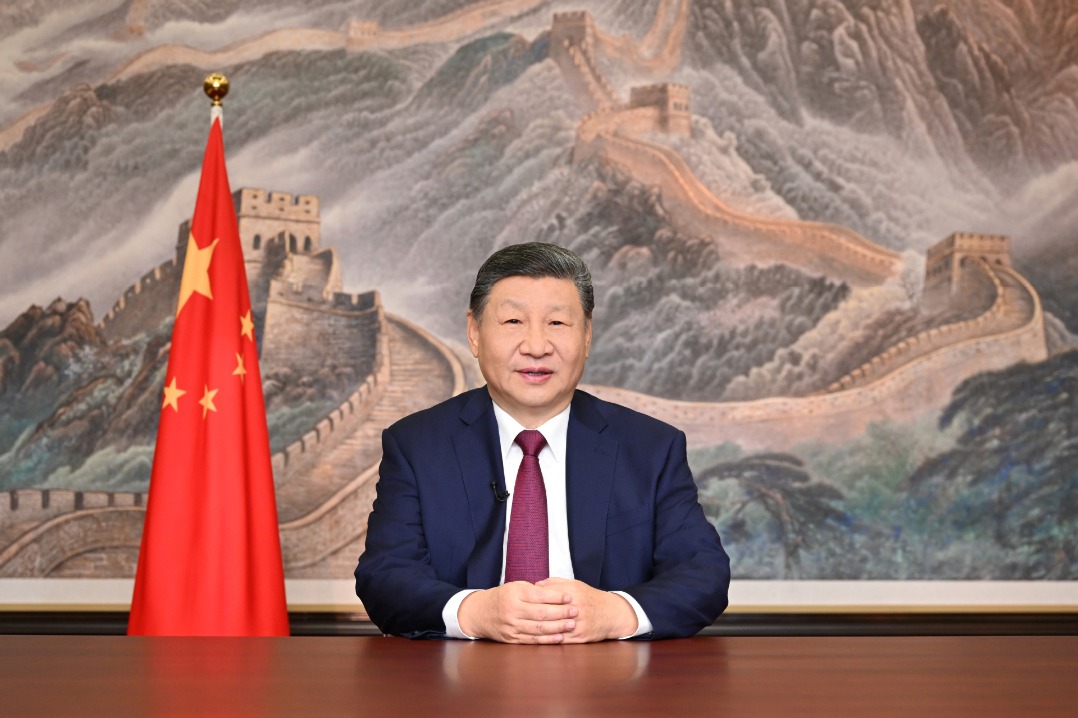Crackdown on 'borrowed' speculation

As China's stock market buzzes with excitement, reaching a decade-high on Monday, banks are taking a cautious turn. Since early August, more than a dozen banks, from rural lenders to national giants, have tightened rules on credit card fund usage, emphasizing that borrowed money should support consumer spending, not speculative investments.
On Aug 1, Shaanxi Rural Credit Union, a collective of rural commercial banks and rural credit cooperatives in Shaanxi province, issued a directive explicitly barring credit card funds from being used in investment and financial management activities, including shares, mutual funds, futures and cryptocurrencies, precious metals and equity investments. It further warned that funds diverted from consumption could face outright transaction rejections. This policy quickly spread to its nearly 10 affiliated banks and cooperatives.
In addition to Shaanxi, local banks such as Bank of Taizhou in Zhejiang province and Hekou Rural Commercial Bank in Yunnan province have also issued statements regarding the use of credit card funds since early August.
Notably, some banks have put credit card cash advance transfers under controlled fund categories. China Minsheng Bank announced in a notice that starting Sept 18,2025, such transfers will be categorized as "controlled funds", prohibiting their use for property purchases, investments or gambling.
Dong Ximiao, chief researcher at Merchants Union Consumer Finance, said: "Regulators and banks are highly attentive to this issue, enhancing monitoring and management while advising investors to remain rational and cautious. Their message is clear: borrowed money should fuel spending, not speculation."
The restrictions on credit card fund usage are not new. Regulatory bodies have long prohibited the use of credit-based funds for non-consumption purposes. In 2022, the then China Banking and Insurance Regulatory Commission and the People's Bank of China issued further guidelines to promote the healthy development of credit card businesses. The recent bank announcements indicate a proactive stance.
The risks are real. Lou Feipeng, a researcher at Postal Savings Bank of China, noted that credit cards are fundamentally designed for personal consumption, not investment. Allowing such funds to flow into the stock market not only violates regulatory requirements but also exposes cardholders to additional risks. "If investors suffer losses, their repayment burden will increase significantly," he said.
For banks, Lou added, the misuse of credit card funds complicates risk management. "When funds are diverted into equities, the non-compliance adds pressure to banks' asset quality and raises the likelihood of bad loans, while also making customer management far more challenging," he warned.
The timing also dovetails with the country's push to bolster consumption through more targeted lending. On July 31, the State Council announced policies to subsidize interest payments on personal consumption loans and loans for service-sector businesses. Experts quickly stressed that the funds should be kept in "real economy" channels rather than drifting into housing or equities.
Dong emphasized that personal consumption loans and credit card funds both carry the risk of entering the stock market, especially as the market rebounds. "Strengthening the management of these funds is crucial," he said.
Enforcement remains challenging. "This is one of the most intractable issues banks face," Dong said, as cash withdrawals, layered transfers and disguised transactions can all mask the ultimate destination of funds.
Luo advocates for tighter upfront vetting and using big data and artificial intelligence to track spending patterns. Real-time monitoring, he argued, could allow "penetrative "management of fund flows, keeping money out of forbidden sectors.
Today's Top News
- Confidence, resolve mark China's New Year outlook: China Daily editorial
- Key quotes from President Xi's 2026 New Year Address
- Full text: Chinese President Xi Jinping's 2026 New Year message
- Poll findings indicate Taiwan people's 'strong dissatisfaction' with DPP authorities
- Xi emphasizes strong start for 15th Five-Year Plan period
- PLA drills a stern warning to 'Taiwan independence' separatist forces, external interference: spokesperson






























